Description
ABSTRACT
Arbitrating Intellectual Property Disputes: Issues and Perspectives
Professor Paul Idornigie, SAN* & Professor Adebambo Adewopo**
Today’s dynamic commercial environment has secured arbitration as an effective legal mechanism for resolution of disputes arising there from. This article examines the use of arbitration as a viable mechanism for resolving Intellectual Property (IP) disputes. It builds on the doctrinal foundations and interaction between intellectual property and arbitration systems with their respective rules, principles and precepts. Comparing and contrasting the contours of the two systems, the article examines the nature of Intellectual Property Rights (IPRs) and IP disputes, the rational basis for arbitration and the contentious issue of arbitrability and its application to IP disputes. The article argues that prima facie IP disputes are arbitrable, but not without its own challenges, which border on the peculiar nature of IPRs and their enforcement. Drawing perspective from the WIPO arbitration system, the article presents a case for arbitration regime for emerging IP disputes among parties within the framework of increasingly complex commercial and transnational transactions in Nigeria.
INTRODUCTION
In modern commercial environment, arbitration is no longer a new system of dispute resolution. Arbitration understandably provides a special procedure by agreement, where parties agree to submit their dispute to a neutral arbitral tribunal for a binding decision. While court proceedings are usually held in public, parties in arbitration have chosen a procedure that is private and confidential for determining their commercial disputes including Intellectual Property (IP) disputes. With notably four fundamental features, arbitration continues to complement litigation as a dispute settlement mechanism: it is a private mechanism for dispute resolution; it is an alternative to national courts; it is selected and controlled by the parties (principle of party autonomy);1 and it is the final and binding determination by an impartial tribunal of the parties’ rights and obligations.2 Arbitration is also anchored on three other fundamental principles: principle of separability (the arbitration clause in a contract is separate and independent of the main contract); the competence of the arbitral tribunal to rule on its own jurisdiction (kompetenz-kompetenz); and the principle of judicial non or minimal intervention.3 Even with its uniquely distinctive features, it has not ceased to generate considerable debate in its operation and application to a wide range of subject matters.
* Professor and Head, Department of Commercial Law, Nigerian Institute of Advanced Legal Studies, Abuja, Nigeria
** Professor and Head, Department of Private & Property Law, Nigerian Institute of Advanced Legal Studies, Abuja, Nigeria
- Paul O Idornigie, ‘The Principle of Party Autonomy in Arbitral Proceedings: A Myth or Reality?’ (2003) 22(3) The Arbitrator & Mediator 37
- International Chamber of Commerce, The ICC Intellectual Property Roadmap: Current and Emerging Issues for Business and Policy Makers. (12th edn, International Chamber of Commerce 2014) 73
- Paul O Idornigie, ‘Anchoring Commercial Arbitration on Fundamental Principles’ (2004) 23(1) The Arbitrator & Mediator 65

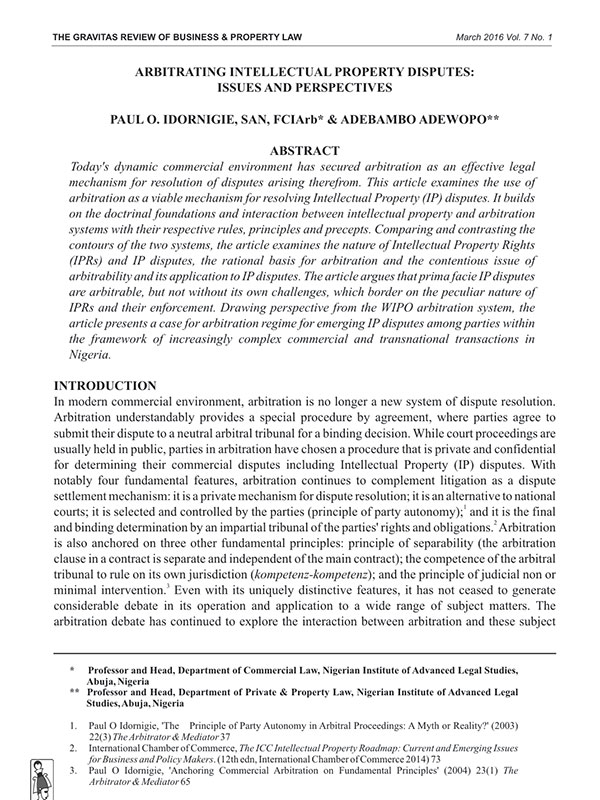
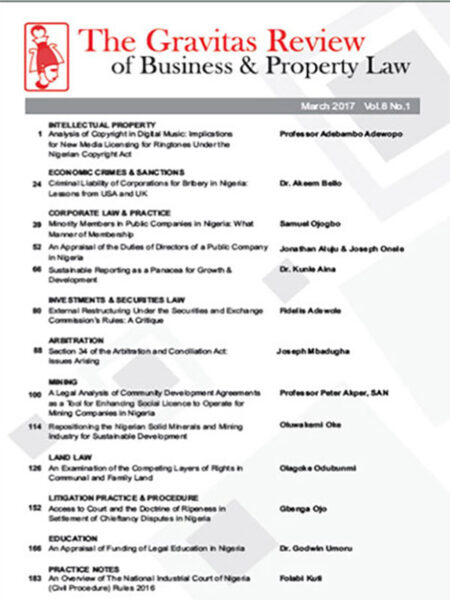
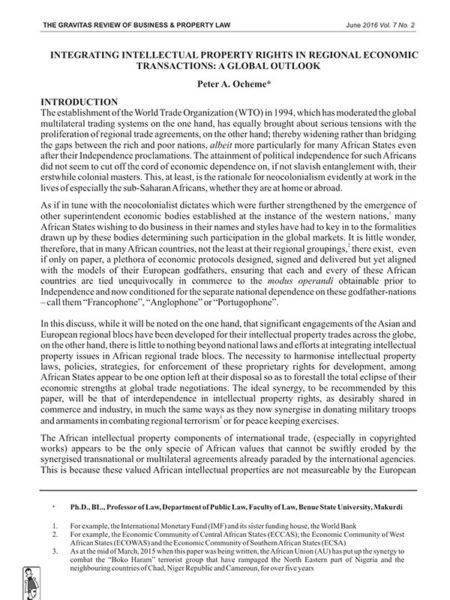
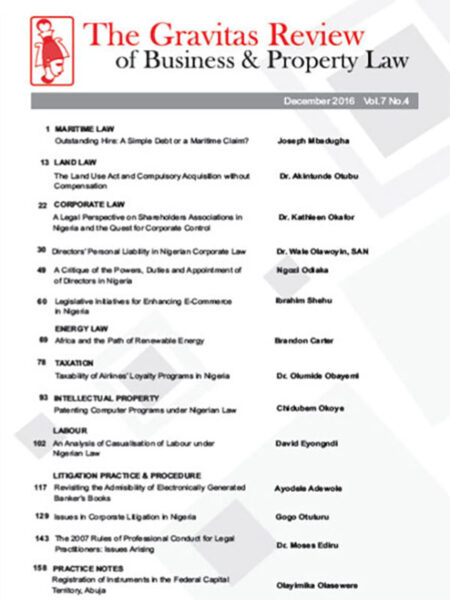
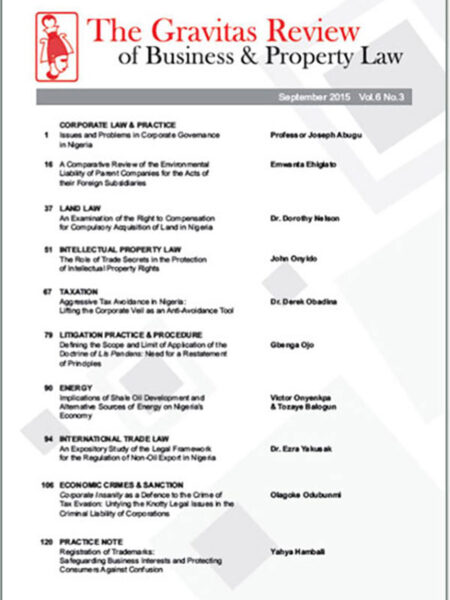


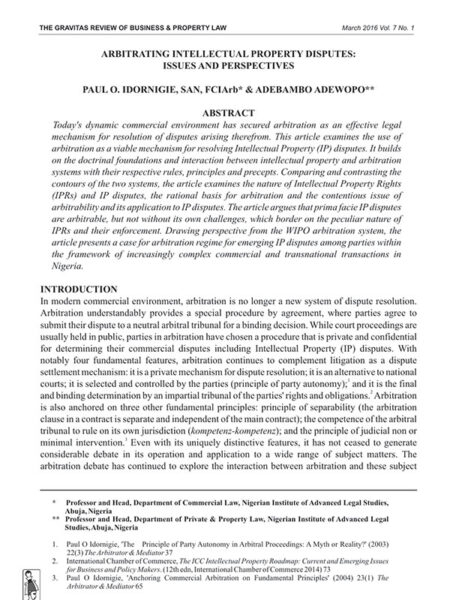
Reviews
There are no reviews yet.